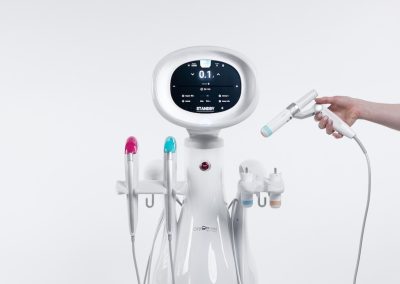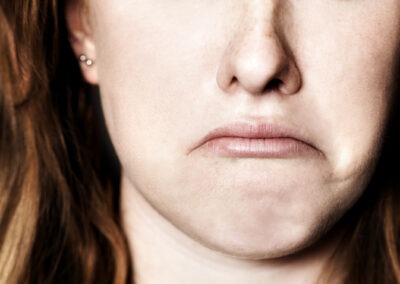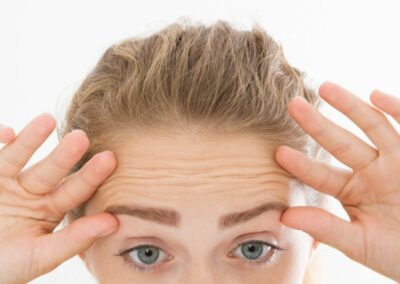Did you know that Collagen is kind of like the glue that holds the cells in the body together?
Super important for helping the connective tissue within your pelvic floor anatomy be healthy and working well to treat and prevent pelvic floor dysfunction.
So what is Collagen?
Collagen is one of the most important components of how the connective tissue are linked together to maintain the support and function of the pelvic floor. It is the predominant, load-bearing protein of the pelvic floor connective tissues. Very important for keeping your pelvic floor anatomy healthy and working well.. Which we’d all love!
Now collagen is not new it’s just that some companies have started to produce collagen in an environmentally sustainable and effective way. We naturally produce collagen within our body daily but as we age it declines. You might be shocked to know this level declines after 25 years of age.
Best Types of Collagen to help with Pelvic Floor Dysfunction:
Collagen changes, including the structure of the collagen, the biomechanical changes and abnormalities of collagen breakdown, can destroy the supportive function of the pelvic floor and are closely related to the development of pelvic organ prolapse and dysfunction. Research on how these changes occur in the collagen is very limited, and so much more research is needed.
However, we do know that taking a high quality and effective collagen supplement can help your tissue be healthy and function better including your muscles and connective tissue Eg your Pelvic Floor.
Collagen I and III are 2 of the major subtypes of the pelvic tissue. Now this is very important to know as different collagen types from powders to liquid contain different collagen types. Know your collagen first before you buy so you don’t waste your time and money.
What you need to know about collagen:
1. Type of collagen
Personally I’ve been taking an amazing liquid marine collagen from Isagenix which has just been listed in the top 6 inner beauty products with Marie Claire – it is predominantly type I collagen. Externally you will see the results with your skin however as you know Type I is one of the predominant types of collagen in pelvic tissue.
Type I – Skin, bone, tendon, connective tissue, hair, nails.
Type II – Cartilage – cushioning for joints.
Type III – especially important in providing elasticity, deeper layer of skin, blood vessels and deeper structures.
2. The correct dose
Studies show the amount to take to be effective in your body is 5g/day, there is no point in taking one that doesn’t have this amount as it won’t be as effective!
3. Where is it sourced? – Know where the collagen comes from – Is it bovine (beef) porcine (Pork), chicken or marine?
Predominantly bovine and porcine collagens are type III with some type I and II which is more beneficial for joints and cartilage and you will probably find these as powder and bone broths.
Chicken collagen is predominantly type II beneficial for joints and cartilage.
Liquid marine which is the superior form of collagen is rich source of Type I. Superior because it provides the same type of collagen peptides that our bodies are, making it easier to be utilised and absorbed by the body. Absorbed 1.5 times more effectively than other sources.
Remember collagen is just one part of the health puzzle, appropriate pelvic floor exercises and protein in general are also needed to feel amazing results!
Want to start noticing the benefits of Collagen – Buy Now
If you’re in Australia, New Zealand or the USA and love the idea of trialling the Liquid marine collagen like me with a 30 day money back guarantee and delivered to your door?
Check out the Beauty Booster Bundle – Collagen Elixir & Bone Broth.
Oh and it’s safe during pregnancy and breastfeeding and best consumed fasted in the morning.
* Added bonus – You might also notice a few of the lines around your eyes fading too..
Not quite ready to buy? Want to know more about the Isagenix Liquid marine Collagen that Mel uses?
https://www.isagenixhealth.net/5-steps-to-creating-collagen-elixir/
Want to know more about collagen?
https://www.isagenixhealth.net/5-science-backed-benefits-of-collagen/
Melanie Platt
Physiotherapist, Pelvic Floor Therapist and founder of Perfect Pelvic Floor.
References:
Runqi Gong, Zhijun Xia, (2019) Collagen changes in pelvic support tissues in women with pelvic organ prolapse. European Journal of Obstetrics, Gynaecology and Reproductive Biology. Mar;234:185-189
Dani Catania – Dietician (B Nutr Diet)













0 Comments